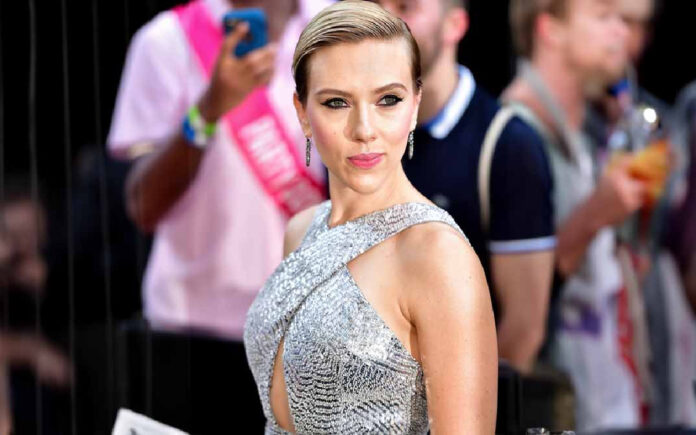New York: OpenAI’s latest AI tool has sparked controversy in Hollywood, particularly due to its uncanny resemblance to Scarlett Johansson’s voice in the movie “Her”. Executives and agents across the industry have expressed renewed concerns about artificial intelligence and its implications for the creative community.
Johansson has accused OpenAI of mimicking her performance in the Spike Jonze-directed film “Her” without reaching an agreement with her. This accusation has reignited fears among Hollywood’s creative class about the existential threat posed by AI. Despite these concerns, many studios are still exploring new tools and considering partnerships with OpenAI.
“This seemed to strike a real chord,” said one industry executive. “It kind of puts a human face on it … There’s a well-known tech company that did something to a person we know.”
In February, OpenAI shocked the world with its text-to-video tool, Sora, which produced feature film-like quality videos. Since then, Hollywood executives and agents have held multiple meetings with the company to discuss potential creative partnerships and applications of the technology, according to agents and industry executives.
Johansson’s public criticism of OpenAI for using a voice she described as “eerily similar” to her own has antagonized some entertainment executives. This criticism comes amid ongoing discussions about working more closely on projects. “It sure doesn’t set up a respectful collaboration between content creators and tech giants,” said one studio executive, calling OpenAI’s actions “hubris.”
In response, OpenAI CEO Sam Altman stated on Monday that the voice “is not Scarlett Johansson’s, and it was never intended to resemble hers. We cast the voice actor behind Sky’s voice before any outreach to Ms. Johansson.”
The company, whose largest investor is Microsoft (MSFT.O), did not respond to requests for comment on its relationship with Hollywood following the dispute.
Even before this conflict, agents and executives who spoke with Reuters on condition of anonymity expressed concerns that OpenAI’s models might have been trained on copyrighted works. The tech company considers this fair use because the works are publicly available on the internet. However, this stance presents a significant obstacle for some professional directors and filmmakers, who may be reluctant to use a tool built on others’ work without consent.
Despite these concerns, technologists in the entertainment industry view Sora as a promising tool to enhance the film and TV-making process. They see near-term applications for the technology to accelerate digital effects production. Fox already uses OpenAI’s ChatGPT to recommend new TV shows and movies for viewers of its Tubi streaming service.
Although OpenAI has stated it aims to protect copyrights by blocking the ability to generate videos featuring known characters like Superman or prominent actors like Jennifer Aniston, there remain concerns about safeguarding lesser-known performers.
Also Read | Daddy Changed the World: Biopic Honoring George Floyd’s Legacy Announced
Struggle between Content Industry and AI Innovators
Johansson’s conflict with OpenAI has opened a new front in the ongoing battle between the content industry and AI leaders. According to John Yanchunis, a partner at the law firm Morgan & Morgan, Johansson might have grounds to argue that OpenAI violated her right to publicity, which allows individuals to control the commercial use of their name, image, or likeness.
A historical precedent for such cases can be found in singer Bette Midler’s lawsuit against Ford’s advertising agency, Young & Rubicam. Midler successfully sued the agency for hiring a former backup singer to imitate her rendition of “Do You Want to Dance?” in a car commercial after she declined an offer to perform the song. This 1987 case, which reached the Supreme Court, upheld her right to publicity. Similarly, Tom Waits won a lawsuit in 1988 against Frito-Lay for using a performance imitating his distinctive singing style in a commercial.
“In both of those cases, the sound-alikes were performing songs that the singers had made famous, so people were likely to assume that the artists were the ones singing and had endorsed the products,” said Mark Lemley, director of the Stanford Program in Law, Science and Technology.
The Johansson case is somewhat different from these earlier cases. However, the attempt to imitate Johansson’s voice from “Her,” coupled with Altman’s repeated efforts to hire her and a tweet by him referencing the film, create “a pretty strong case for Johansson,” according to Lemley.
Jeffrey Bennett, general counsel for the SAG-AFTRA performers union, has been advocating for federal protections for voice and likeness similar to existing copyright laws. SAG-AFTRA played a crucial role in establishing the right of publicity in California and other states.
“We’re thrilled that there’s now this huge dialogue about it,” Bennett said. “We’ve been trying to use the bullhorn and shout about it for quite a while now … We’ve been talking about the proliferation of ‘deep fakes’ and now it’s going to start impacting everybody. Now, it really is a conversation. There must be a federal solution.”



